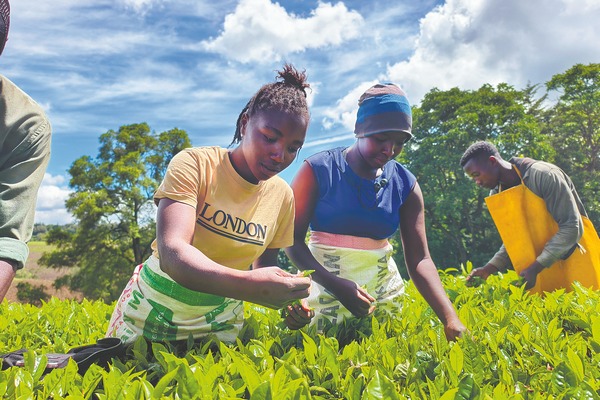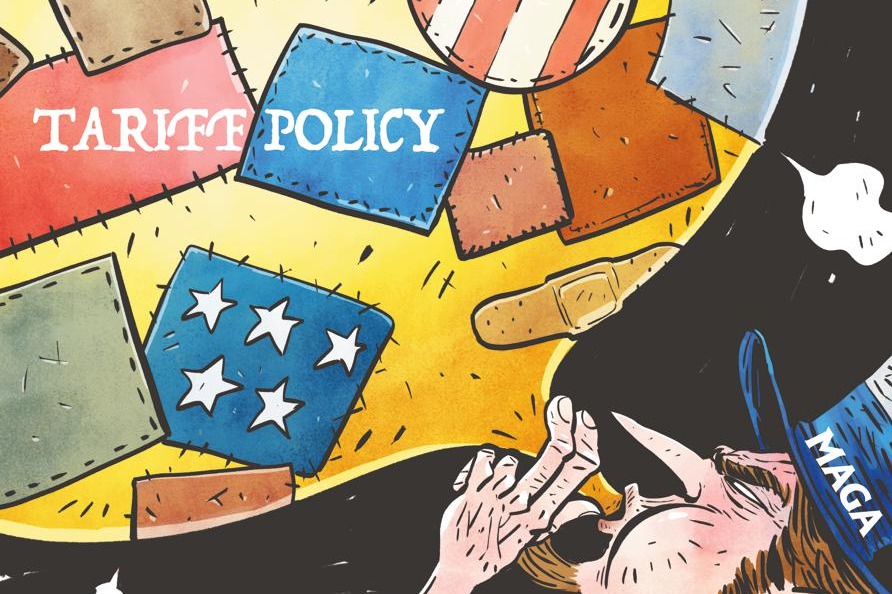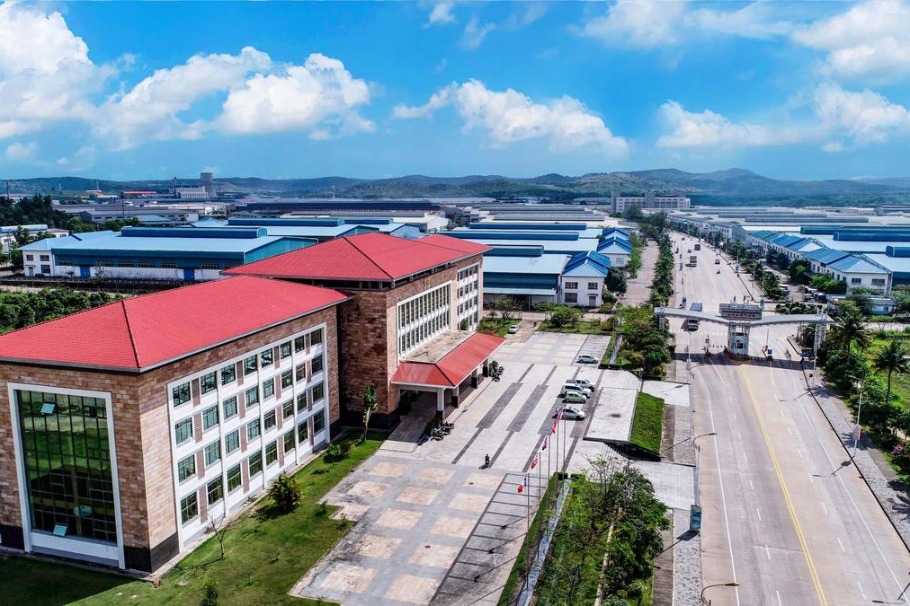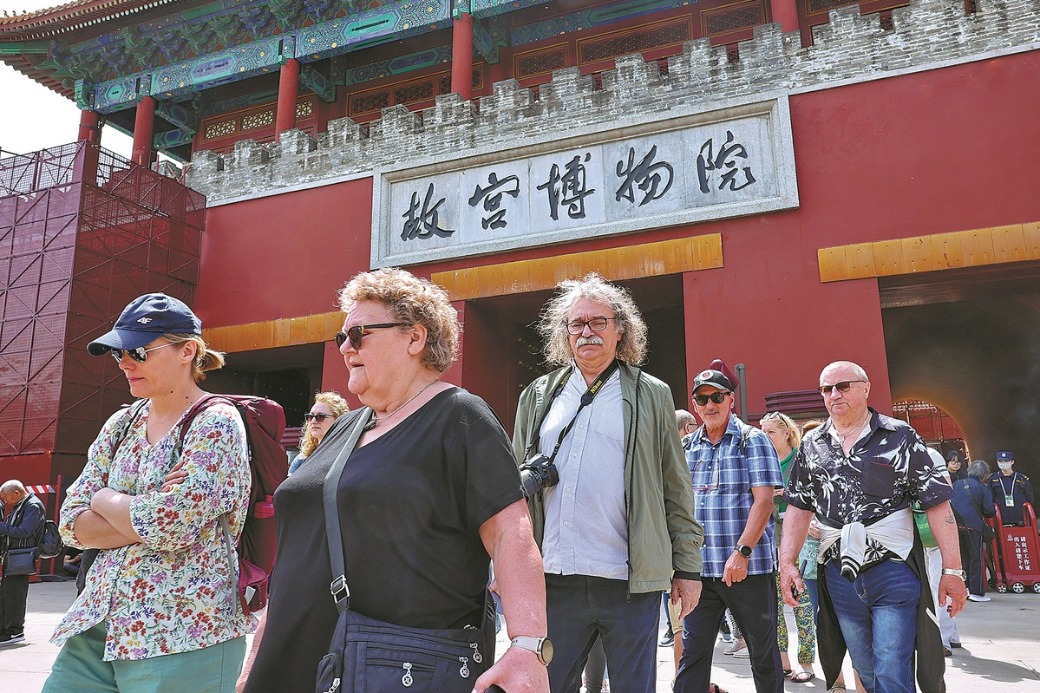Beijing's gift to Dhaka strengthens bonds


Muhammad Yunus, a Nobel Peace Prize winner and the chief adviser to Bangladesh's interim government, visited China from March 26 to 29, marking the beginning of a new chapter in Dhaka-Beijing relations. His visit yielded significant economic and social benefits for Bangladesh that promise to bolster the South Asian country's development and help improve the lives of millions of Bangladeshis.
For example, China will continue to offer duty-free and quota-free market access to Bangladeshi products until 2028, extending the trade benefits for two years after Bangladesh is likely to become a developing economy. At their March 28 talks, Chinese President Xi Jinping and Yunus highlighted the importance of mutual political support and the Belt and Road Initiative in promoting Bangladesh's development.
A joint news release issued by the two countries outlined the priorities for bilateral cooperation, including boosting infrastructure build-up in Bangladesh and aspects such as free trade and maritime cooperation. "The two sides underscored the importance to initiate negotiations on the China-Bangladesh Free Trade Agreement at an early date and officially start negotiations on optimizing the China-Bangladesh Investment Agreement," the statement said.
As the crescent moon at the weekend ushered in the joyous occasion of Eid al-Fitr, marking the end of Ramadan, Bangladeshi people celebrated not only their spiritual triumph but also the extraordinary goodwill gesture of China — a testament to the deepening ties between the two countries and Beijing's commitment to foster friendship and cooperation with Dhaka.
Beijing's decision to extend Bangladeshi goods' duty-free and quota-free access to the Chinese market even after it transitions from a least-developed country to a developing country is a lifeline for Bangladesh's export-driven industries, particularly its ready-made garment sector which employs millions of people and accounts for more than 80 percent of the country's total export earnings.
Beijing's decision is all the more welcome, especially because the European Union and other Western markets have indicated they may phase out duty-free access once Bangladesh achieves a developing nation status, posing a challenge to Bangladesh's more than $55 billion ready-made garment industry.
Moreover, China's openness to negotiating an FTA with Bangladesh presents an opportunity to diversify exports, because an FTA could open the door for pharmaceuticals, leather goods, jute products and agricultural exports, reducing the country's over-reliance on a single sector. That China is the world's second-largest economy will ensure the extended tariff-free access to Bangladeshi products will enable the country to remain competitive, create more jobs and sustain development.
Perhaps the most exciting outcome of Yunus' visit was his suggestion that some Chinese companies in sectors like garment, electric vehicle, light machinery, high-tech electronics and chip manufacturing, as well as solar photovoltaic panel industries relocate to Bangladesh, because it could be a game-changer for Dhaka. These labor-intensive and technology-driven sectors offer dual benefits: employment generation and skill enhancement. The suggested move, if it becomes reality, will not only create more jobs for Bangladesh's burgeoning workforce but also facilitate the transfer of valuable technology and expertise, which will enable Bangladesh to climb up the value chain and diversify its economy.
Bangladesh has long relied on foreign loans to finance its critical infrastructure projects. Beyond trade, the proposed development and livelihood projects, and free up resources which then can be diverted to boost education, healthcare and poverty alleviation initiatives.
Bangladesh has a huge trade deficit with China. According to data from 2024, it imported more than $22.9 billion worth of goods from China and exported goods valued at $677 million. To address this imbalance, China has agreed to import Bangladeshi mangoes, jackfruits, guavas and aquatic products starting this summer. Since agriculture remains a cornerstone of Bangladesh's economy, providing livelihoods for nearly half of its population, this initiative could reduce the massive trade imbalance between the two countries while opening up new export avenues for Bangladeshi farmers and fishermen.
Education takes center stage in Sino-Bangladeshi relations. China's promise to provide scholarships to more Bangladeshi students will help the younger generation access world-class learning opportunities. Education is the foundation of sustainable development, and increasing access to high-quality education abroad will equip young Bangladeshi minds with the tools needed to boost development back home.
As Bangladesh pushes toward digitalization and advanced manufacturing, the authorities need to build a rich pool of high-tech talents, which they can achieve by employing youths returning to Bangladesh after having completed their higher studies in science and engineering at top Chinese universities.
For millions of Bangladeshi farmers, manufacturers and entrepreneurs, China's cooperation is akin to receiving a priceless Eid gift, as it creates for them more export opportunities, helps consolidate economic stability, and promotes prosperity and people's wellbeing.
China's decision is more than just diplomatic courtesy; it reflects China's genuine understanding of Bangladesh's aspirations. As a reliable partner, China has invested in Bangladesh's development. In this respect, China's is a more extensive strategic collaboration than a ceremonial exchange, especially as this year marks 50 years of the establishment of diplomatic ties between the two sides.
The author is a senior lecturer and researcher at the School of Overseas Education (School of Foreign Languages), Sanming University, Fujian province, and a senior research fellow at Daffodil International University Belt and Road Research Centre in Bangladesh.
The views don't necessarily reflect those of China Daily.
If you have a specific expertise, or would like to share your thought about our stories, then send us your writings at opinion@chinadaily.com.cn, and comment@chinadaily.com.cn.
If you have a specific expertise, or would like to share your thought about our stories, then send us your writings at opinion@chinadaily.com.cn, and comment@chinadaily.com.cn.


































